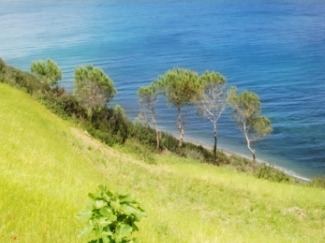Birth of a scientific project to save the Mediterranean coast

The Mediterranean Sea and some regions of the Black Sea suffer from problems such as excessive urbanisation, massive pollution, loss of biodiversity, land use conflicts in coastal areas, and loss of access to resources by the coastal population. In January 2008 a total of 21 countries signed the ICZM (Integral Coastal Zone Management) Protocol for the Mediterranean, with the aim of protecting coastal regions as natural and cultural heritages which must be preserved. This legal instrument, the first of its kind for these regions, was ratified in 2009 by Slovenia and France, and more recently by Morocco, and will enter into force shortly.
The PEGASO project will pave the way for the policies of the Protocol of the Mediterranean. It will be financed with 6,999,004.56 euros under the EC Framework Programme 7 and aims to improve coastal management by bridging science and coastal governance at regional, national and local level. The project will organise the necessary data to create a complete Atlas of the Mediterranean Sea and maintain an updated database to be used by local managers when implementing the ICZM protocol, and will give continuity to a work platform formed by representatives of different coastal management sectors.
To reach these general objectives, researchers will set the scientific methodology needed for the study of relations between rivers, coastal areas and the sea; establish indicators for the tracking of the situation in these zones; develop the tools needed for a rigorous comparison of different zones of the Mediterranean Sea and Black Sea; and design a set of tools based on maps, indicators, spatial analysis and socio-economic assessments needed to meet the European protocol. All of this will lead to the creation of the first network for the collection of data, statistics, satellite images, land use, landscapes and information on forest fires, as well as many other aspects of coastal regions.
The project includes a user group of 15 experts formed by technicians from ministries in France, Greece, Morocco, Algeria, Egypt, Georgia and Turkey; representatives of the tourist (Tunisia) and energy industry sectors, and of the maritime sector and harbours, as well as representatives of regions who will apply the results of the PEGASO project to local management issues. The panel met for the first time at the Project Kick-Off Meeting to be held in Venice, and then once every year during the following four years.
In the future the project will focus on the Black Sea with the aim of preparing a tool similar to the Mediterranean protocol, since both regions share many of the same coastal concerns. The Black Sea strategic panel will include 9 members, and many of the specific study areas have already been defined.
Researchers carried out a preliminary test using the results of the project in those specific areas of the Mediterranean and Black Seas which are in great need of protective actions. These areas include:
-The northern Adriatic Sea where climate change and rises in sea levels pose a threat to the city of Venice;
-The Greek Islands, due to tourist pressure, fishing management, aquiculture, and problems generated by intensive marine mobility in the logistics and management of residues;
-The Moroccan coast, for its loss in biodiversity, tourist pressure and intensive urbanism;
-The northern coast of Lebanon, due to the loss of quality of its waters, territorial management and a decline in its fishing industry;
-The Rhone river mouth located in The Camargue, France, with intensive urbanisation, loss of biodiversity and tourist pressure;
-The Gulf of Gabes, Georgia, a wetland and "sanctuary" of marine mammals, whose biodiversity is being threatened by the construction of an oil pipeline and petroleum refinery;
-Sebastopol Bay, which suffers from poor water quality and a loss of biodiversity;
-The Danube Delta, loss of biodiversity and inadequate water quality;
-The Nile Delta, with coastal erosion problems and loss in the quality of water and local pisciculture;
-The protected region of Dalyan, Turkey, a natural reserve of the endangered loggerhead sea turtle species.
"The diffusion of this project to the general public, and not only within the context of countries participating in the PEGASO project, is of utmost importance to assure a good management of coastal areas", affirms Françoise Breton, director of ETC/LUSI (European Topic Centre on Land Use and Spatial Information) at Universitat Autònoma de Barcelona and coordinator of the project.
For Zeljka Skaricic, Senior Programme Officer of the United Nations Environmental Programme, "PEGASO is a project that is open to coast-lovers and people committed to the environment, to share knowledge and experiences, and aims to develop from a project into a full state of mind".
UAB

